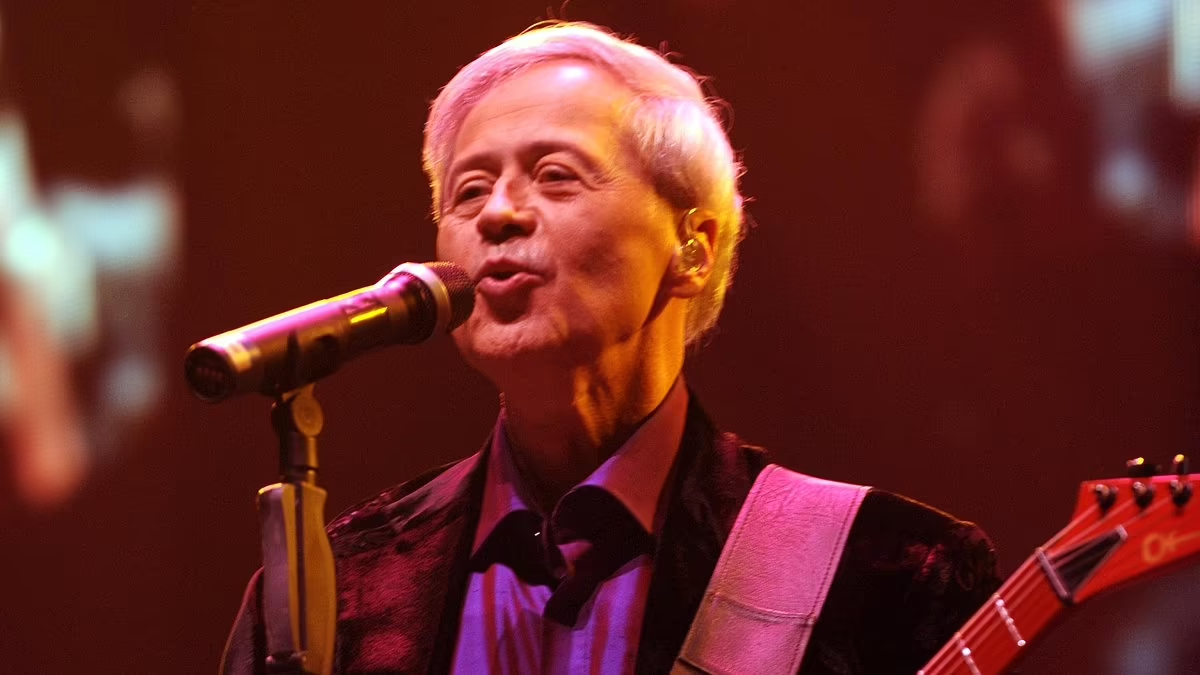Wayne Osmond is a name synonymous with musical excellence, family values, and enduring popularity. As a pivotal member of The Osmonds, Wayne has made an indelible mark on the world of entertainment. Over the decades, his contributions to music, his versatility as a performer, and his resilience in the face of personal and professional challenges have solidified his legacy. This blog explores Wayne Osmond’s remarkable journey through the decades, highlighting his influence on music, his personal milestones, and his lasting impact on fans worldwide.
The Early Years: A Family Affair
Born on April 28, 1951, Melvin Wayne Osmond grew up in a musically gifted family in Ogden, Utah. The Osmond family—under the guidance of their parents, George and Olive Osmond—was steeped in harmony and discipline. Wayne, the second eldest of the Osmond siblings, displayed an early aptitude for music and performance, setting the stage for a career that would span more than five decades.
The Osmond Brothers began their journey performing barbershop harmonies. Their big break came when they caught the attention of Andy Williams, leading to regular appearances on The Andy Williams Show in the 1960s. Wayne’s smooth vocals and ability to play multiple instruments, including guitar, keyboard, and flute, distinguished him as a versatile artist within the group. This early exposure not only honed Wayne’s talents but also introduced The Osmonds to a national audience.
The 1970s: From Barbershop to Rock Stardom
The 1970s marked a transformative period for Wayne and The Osmonds. While they were initially known for their clean-cut barbershop image, the band evolved into a pop and rock phenomenon. Hits like “One Bad Apple,” “Crazy Horses,” and “Love Me for a Reason” showcased their ability to adapt to changing musical trends. Wayne, as a co-writer and instrumentalist, played a critical role in shaping the group’s sound.
One of Wayne’s standout contributions was his work on “Crazy Horses,” a hard rock anthem that addressed environmental concerns. His intricate guitar riffs and harmonizing vocals added depth to the track, proving The Osmonds were more than just a pop group. The song’s success demonstrated Wayne’s ability to innovate and connect with audiences beyond the teen market.
Wayne also contributed to the group’s ambitious concept album The Plan (1973), which blended elements of progressive rock with themes of spirituality. The album was a bold departure from their earlier work and reflected Wayne’s commitment to pushing creative boundaries. His dedication to quality and authenticity earned the respect of critics and fans alike.
Challenges and Triumphs in the 1980s
The 1980s were a decade of transition for Wayne Osmond. As The Osmonds’ mainstream popularity waned, the family faced financial difficulties and a shift in the music industry landscape. Despite these challenges, Wayne’s resilience shone through. He and his brothers continued to tour, performing in smaller venues and adapting their act to cater to a loyal fanbase.
During this period, Wayne also focused on his personal life. In 1974, he married Kathlyn White, and together they raised a family. Balancing the demands of show business with family life was no small feat, but Wayne’s strong sense of values kept him grounded. His ability to navigate the highs and lows of the entertainment industry became an inspiration to many.
In addition to live performances, Wayne embraced opportunities behind the scenes. His skills as a songwriter and arranger were instrumental in keeping The Osmonds relevant. Collaborating with his siblings, he helped produce music that resonated with audiences, proving that their family bond was as strong as ever.
The 1990s: A Return to the Spotlight
The 1990s saw a resurgence of interest in The Osmonds, fueled by nostalgia and a renewed appreciation for their contributions to music. Wayne and his brothers capitalized on this wave by participating in reunion tours and television specials. Their performances celebrated their legacy while introducing their music to a new generation of fans.
One of the highlights of this era was the release of The Osmonds Live Reunion Concert in 1996. The album captured the energy and harmony that had defined their career, with Wayne’s vocals and instrumental prowess playing a key role. The concert was a reminder of the enduring appeal of The Osmonds and their ability to bring joy to audiences worldwide.
Health Struggles and Resilience
In the early 2000s, Wayne faced one of the most significant challenges of his life when he was diagnosed with a brain tumor. The news was a devastating blow, but Wayne approached it with characteristic strength and optimism. Following successful surgery and treatment, he made a remarkable recovery, earning admiration for his courage and determination.
Wayne’s health struggles highlighted the support and love of his family. His journey also inspired fans, many of whom found strength in his story. Wayne’s ability to overcome adversity became a central theme of his later career, reinforcing his role as a source of inspiration.
Legacy and Influence
Today, Wayne Osmond’s legacy is celebrated as part of The Osmonds’ enduring impact on music and entertainment. As a performer, songwriter, and multi-instrumentalist, Wayne’s contributions have left an indelible mark. His versatility allowed him to adapt to changing musical landscapes, while his commitment to family values and authenticity resonated with fans across generations.
Wayne’s influence extends beyond his work with The Osmonds. His music has inspired countless artists, and his story is a testament to the power of perseverance. Whether through iconic hits like “Crazy Horses” or heartfelt performances, Wayne’s artistry continues to resonate.
Conclusion
Wayne Osmond’s musical journey is a testament to talent, resilience, and the enduring power of family. From his early days performing barbershop harmonies to his role in shaping The Osmonds’ success, Wayne has demonstrated an unwavering commitment to excellence. Through challenges and triumphs, he has remained a source of inspiration to fans and fellow musicians alike.
As we reflect on Wayne Osmond’s legacy, it is clear that his contributions to music and his ability to connect with audiences have secured his place in the annals of entertainment history. His journey through the decades serves as a reminder of the enduring impact of passion, perseverance, and the love of music.






